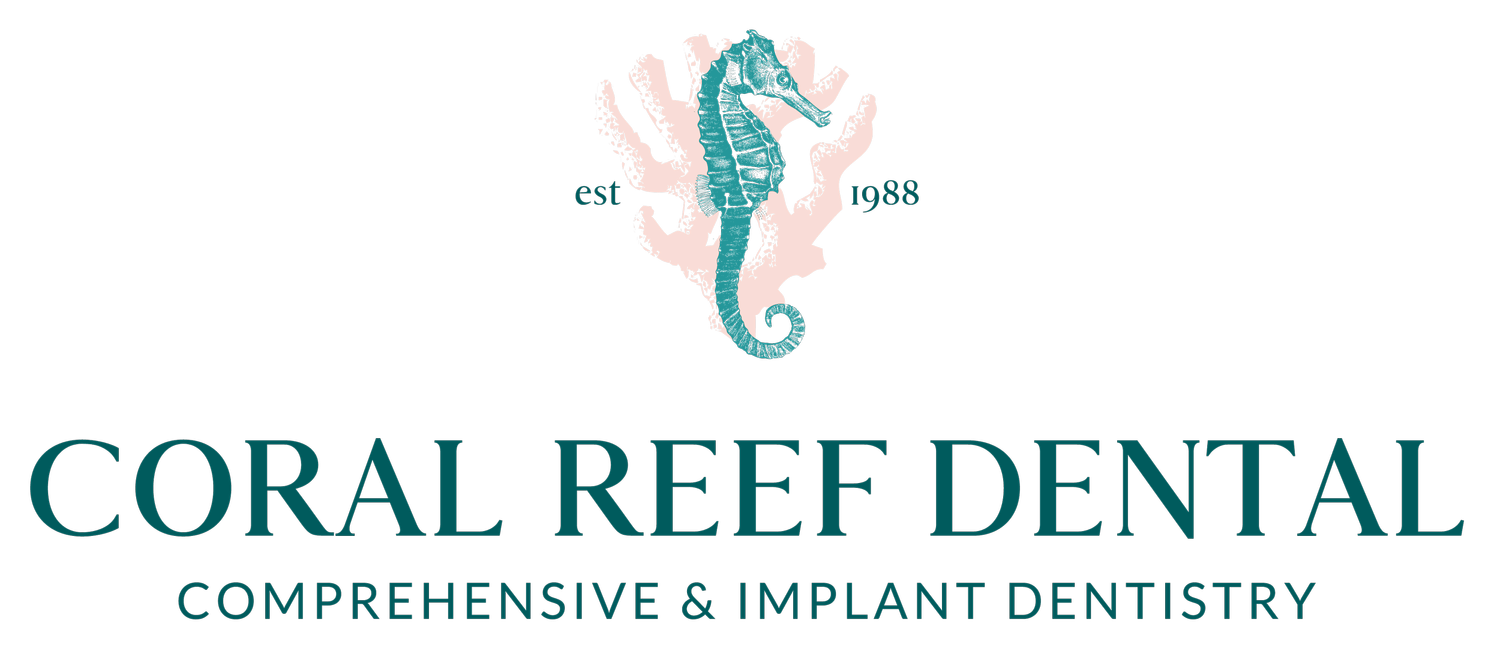Loose Tooth? Causes, Treatments, and Prevention
As an adult, feeling a loose tooth in your mouth can be alarming. After all, loose teeth can be a sign of poor health or disease. While you must address the issue with your dentist, try not to panic. Many adults experience loose teeth, and it might even be possible to save a wiggly tooth! Join us as we discuss the causes of loose teeth, as well as how to treat and prevent them.
What causes loose teeth in adults?
While children lose their baby teeth all the time, that familiar wiggle is something few adults see coming. Here are a few of the leading reasons teeth may become loose:
Gum disease
Gum disease, gingivitis, or periodontal disease is a bacterial infection that causes receding gums. As it progresses, it can eat away at the soft tissue and bone in your jaw, ultimately leading to loose teeth. Swollen, sensitive gums that bleed when you floss can indicate that advanced gum disease is present.
Injury to the tooth
Of course, injuries to the mouth, face, or jaw can also cause your permanent teeth to loosen. Whether it’s from a car accident, contact sport, or other impact, physical damage is a leading cause of loose teeth.
Teeth grinding
Many times, stress can lead to teeth clenching and grinding. Both of these activities can cause loose teeth. However, you may not even realize it’s happening, especially if you grind your teeth during sleep.
Osteoporosis
Osteoporosis is a disease characterized by bone loss. As such, it’s an underlying disorder that may increase the chance of a loose tooth. While anyone can have osteoporosis, women who have gone through menopause are at the highest risk.
One possibility is diabetes
Diabetes can also raise the chances of developing gum disease, which you already know is a leading indicator of loose teeth. That’s because high blood glucose can exacerbate gum inflammation.
Can a wiggly adult tooth be saved?
Fortunately, it’s possible to save a loose tooth in many cases. Here are the treatment options dentists may use to salvage a wiggly tooth:
Root planing
If you have a wiggly tooth that’s otherwise healthy, your dentist may be able to remove plaque and tartar below the gum line and then smooth the root of the tooth. This allows the gums to better adhere to the tooth so it no longer wiggles.
Bone grafting
When a loose tooth occurs alongside bone loss in your jaw, you may need a dental bone graft. During this procedure, your dentist or oral surgeon will implant natural or synthetic bone around the root of your loose tooth to encourage the regeneration of these existing structures.
Splinting
A non-surgical dental treatment to repair a loose tooth is splinting, in which your dentist bonds your tooth to the teeth on either side of it using composite material. However, splinting is only a temporary fix.
How do you prevent loose teeth in the future?
According to the American Dental Association, the best ways to avoid loose teeth are proper dental hygiene and regular visits to your dentist. Here’s our guide to prevent loose teeth in the future.
Avoid tobacco
Cigarettes and other tobacco products are another leading cause of gum disease. Kicking the habit will lower your chances of a loose tooth and more severe issues like oral cancer.
Stick to an oral hygiene routine
Good oral hygiene is essential for optimal dental health. Be sure to brush and floss your teeth at least twice daily–once upon waking up in the morning and again right before bedtime. You might also want to brush after meals to ensure bacteria can’t stick to your teeth.
Support your oral health
A healthy diet, including plenty of calcium and vitamin D, will help prevent loose teeth caused by nutritional deficiencies. It’s also important to stay hydrated, as dry mouth can exacerbate tooth decay and erosion.
Get regular checkups with your dentist
Regular dental checkups and deep teeth cleanings every six months can help you avoid cavities, loose teeth, and other common symptoms of poor dental hygiene, such as tooth sensitivity. During these visits, your dentist will assess your gum tissue as well as your teeth to prevent potential problems from appearing.
Wear mouthguards during intense physical activity
At any age, our teeth are vulnerable to damage from major impacts. Be sure to wear a mouthguard during contact sports, and ask your dentist about a night guard to wear as you sleep to prevent damage from teeth grinding and risking chipped teeth.
Visit Coral Reef Dental to treat your loose tooth right away!
While loose teeth can affect your self-esteem and indicate certain things about your overall health, it’s important to remember that this is a common dental problem, and there’s nothing to be embarrassed about.
At Coral Reef Dental, we can help you fix a loose tooth or provide unparalleled services for dental cleanings and routine exams. Remember, if left untreated, your loose tooth won’t get better on its own! Contact us today to get started!


